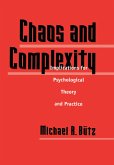L. S. Vygotsky
Educational Psychology (eBook, PDF)
54,95 €
54,95 €
inkl. MwSt.
Sofort per Download lieferbar

27 °P sammeln
54,95 €
Als Download kaufen

54,95 €
inkl. MwSt.
Sofort per Download lieferbar

27 °P sammeln
Jetzt verschenken
Alle Infos zum eBook verschenken
54,95 €
inkl. MwSt.
Sofort per Download lieferbar
Alle Infos zum eBook verschenken

27 °P sammeln
L. S. Vygotsky
Educational Psychology (eBook, PDF)
- Format: PDF
- Merkliste
- Auf die Merkliste
- Bewerten Bewerten
- Teilen
- Produkt teilen
- Produkterinnerung
- Produkterinnerung

Bitte loggen Sie sich zunächst in Ihr Kundenkonto ein oder registrieren Sie sich bei
bücher.de, um das eBook-Abo tolino select nutzen zu können.
Hier können Sie sich einloggen
Hier können Sie sich einloggen
Sie sind bereits eingeloggt. Klicken Sie auf 2. tolino select Abo, um fortzufahren.

Bitte loggen Sie sich zunächst in Ihr Kundenkonto ein oder registrieren Sie sich bei bücher.de, um das eBook-Abo tolino select nutzen zu können.
When this classic book was first published in 1926, L.S. Vygotsky was well on his way to becoming one of the leading intellectuals in Russia. His study of the psychology of education led him to believe that the child should be the main figure in the educational process - and the efforts of the teacher should be directed toward organizing
- Geräte: PC
- mit Kopierschutz
- eBook Hilfe
Andere Kunden interessierten sich auch für
![Chaos And Complexity (eBook, PDF) Chaos And Complexity (eBook, PDF)]() Michael R. ButzChaos And Complexity (eBook, PDF)70,95 €
Michael R. ButzChaos And Complexity (eBook, PDF)70,95 €![Single Session Thinking and Practice in Global, Cultural, and Familial Contexts (eBook, PDF) Single Session Thinking and Practice in Global, Cultural, and Familial Contexts (eBook, PDF)]() Single Session Thinking and Practice in Global, Cultural, and Familial Contexts (eBook, PDF)37,95 €
Single Session Thinking and Practice in Global, Cultural, and Familial Contexts (eBook, PDF)37,95 €![Case Studies in Child and Adolescent Metal Health (eBook, PDF) Case Studies in Child and Adolescent Metal Health (eBook, PDF)]() M. S. ThambirajahCase Studies in Child and Adolescent Metal Health (eBook, PDF)45,95 €
M. S. ThambirajahCase Studies in Child and Adolescent Metal Health (eBook, PDF)45,95 €![Interpersonal Psychotherapy for Adolescents (eBook, PDF) Interpersonal Psychotherapy for Adolescents (eBook, PDF)]() Robert McAlpineInterpersonal Psychotherapy for Adolescents (eBook, PDF)39,95 €
Robert McAlpineInterpersonal Psychotherapy for Adolescents (eBook, PDF)39,95 €![Outdoor Therapies (eBook, PDF) Outdoor Therapies (eBook, PDF)]() Outdoor Therapies (eBook, PDF)33,95 €
Outdoor Therapies (eBook, PDF)33,95 €![Adapting Evidence-Based Eating Disorder Treatments for Novel Populations and Settings (eBook, PDF) Adapting Evidence-Based Eating Disorder Treatments for Novel Populations and Settings (eBook, PDF)]() Adapting Evidence-Based Eating Disorder Treatments for Novel Populations and Settings (eBook, PDF)41,95 €
Adapting Evidence-Based Eating Disorder Treatments for Novel Populations and Settings (eBook, PDF)41,95 €![Mad Tales from Bollywood (eBook, PDF) Mad Tales from Bollywood (eBook, PDF)]() Dinesh BhugraMad Tales from Bollywood (eBook, PDF)31,95 €
Dinesh BhugraMad Tales from Bollywood (eBook, PDF)31,95 €-
-
-
When this classic book was first published in 1926, L.S. Vygotsky was well on his way to becoming one of the leading intellectuals in Russia. His study of the psychology of education led him to believe that the child should be the main figure in the educational process - and the efforts of the teacher should be directed toward organizing
Dieser Download kann aus rechtlichen Gründen nur mit Rechnungsadresse in A, B, BG, CY, CZ, D, DK, EW, E, FIN, F, GR, HR, H, IRL, I, LT, L, LR, M, NL, PL, P, R, S, SLO, SK ausgeliefert werden.
Produktdetails
- Produktdetails
- Verlag: Taylor & Francis eBooks
- Seitenzahl: 416
- Erscheinungstermin: 27. April 2020
- Englisch
- ISBN-13: 9781000170221
- Artikelnr.: 59339472
- Verlag: Taylor & Francis eBooks
- Seitenzahl: 416
- Erscheinungstermin: 27. April 2020
- Englisch
- ISBN-13: 9781000170221
- Artikelnr.: 59339472
- Herstellerkennzeichnung Die Herstellerinformationen sind derzeit nicht verfügbar.
L.S. Vygotsky,
Editors Note
Preface
Introduction
Chapter 1 Pedagogics and Psychology
Pedagogics
Psychology
Educational Psychology
Chapter 2 The Concept of Behavior and Reaction
Behavior and Reaction
The Three Components of a Reaction
Reaction and Reflex
The Inherited Reactions and the Acquired Reactions
Inherited or lJnconditional Reflexes
Instincts
Origin of Inherited Reactions
Conditional Reflexes
Super
reflexes
Complex Forms of Conditional Reflexes
Chapter 3 The Most Important Laws of Higher Nervous Activity in Man
The Laws of Inhibition and Disinhibition
Psyche and Reaction
Animal Behavior and Human Behavior
The Build
up of Reactions into Behavior
The Principle of the Dominant in Behavior
Human Constitution and Human Behavior
Chapter 4 Biological and Social Factors in Education Activity of the Educational Process and its
Participants On the Goals of Education from the
Psychological Standpoint Education as Social Selection
Chapter 5 The Instincts as the Subject, Nkclianism, and Means of Education
Origin of the Instincts
Relationship Between the Instincts, Reflexes, and Reason
Instincts and the Biogenetic Law
Two Extreme Views of the Instincts
Instincts as a Mechanism of Education
The Concept of Sublimination
Education of the Sex Instinct
Psychological Preconditions of Co
education
Pedagogical Application of the Interest
The Child's Interest
The Pattern of the Child's Interest
The Psychological Value of Games
Chapter 6 Education of Emotional Behavior
The Concept of Emotion
Biological Nature of Emotions
Psychological Nature of the Emotions
Educations of the Feelings
Chapter 7 Psychology and Pedagogics of Attention
Psychological Nature of Attention
Description of Orientation
Internal and External Orientation
Attention and Distraction
Biological Value of Orientation
Educational Value of the Orientations
Development of Attention
Psychological Value of Anticipation
Pedagogical Conclusions
Atterit ion and Habit
Physiological Counterparts of Attention
The Overall Function of Attention
Attention and Apperception
Chapter 8 Reinforcement and Recollection of Reaction
Concept of the Plasticity of Matter
Psychological Nature of Memory
Structure of the Process of Memory
Typcs of Memory
Individual Features of Memory
Limits of Memory Training
Interest and Emotional Tinge
Forgetting and Incorrect Recall
Psychological Functions of Memory
Memory Techniques
Recollections of Reactions: Two Types of
Reality of Fantasy
Functions of Imagination
Education of Imaginative Behavior
Chapter 9 Thinking as an Especially Complex Forr Behavior
The Motor Nature of Mental Processes
Conscious Behavior and Will
Psychology of Language
Id and Ego
Pedagogical Conclusions
Analysis and Synthesis
Value of Thinking for Inner Education
Chapter 10 Psychological Understanding of Occupational Education
Types of Trade Schools
Cognition of Nature Through Labor
Coordinations of Labor Efforts
Value of Effort in Labor
Synthetic Knowledge
Praxis
Vocational and Polytechnism
Chapter 11 Social Behavior and the Child'sDevelopmcnt
The Concept of Adaptation
The Child and the Environment
The Contemporary Environment and
Education
Genuine Forms of Social Behavior Variations in the Development of Children
Chapter 12 Ethical Behavior The Nature of Ethics from the Psychological
Point of View Principles of Moral Education Moral Transgressions in Childhood
Chapter 13 Esthetic Education
Esthetics in the Service of Pedagogics
Morality and Art
Art and the Study of Reality
Art as an End in Itself
Passivity and Activity in Esthetic Experience
Biological Value of Esthetic Activity
Psychological Description of Esthetic
Reactions Education of Creativity, Esthetic Reasoning,
and Technical Skills Fables Esthetic Education and Natural Talent
Chapter 14 Exercise and Fatigue
On Habit
Pedagogical Value of Exercise
The Study of Fatigue
Chapter 15 Abnormal Behavior
The Concept of Abnormal Behavior
Physically Disabled Children
Mental Disability and Psychopathology
Psychopathology of Everyday Life
Hypnosis
Chapter 16 Temperament and Character
The Importance of Terms
Temperament
Structure of the Body and Character
Four Types of Temperament
The Problem of Career and Vocational Psychology
Endogenic and Exogentic Features of
Character
Chapter 17 The Problem of Giftedness Individual Goals of Education
Personality and Education
Chapter 18 Basic Forms of Investigations of the Personality of the Child Experimental Psychological Investigation of the Personality Binet
Simon Method
Chapter 19 Psychology and the Teacher
The Psychological Nature of the Work of The Teacher
Life as Creation
Historical Notes
Bibliography
Index.
Preface
Introduction
Chapter 1 Pedagogics and Psychology
Pedagogics
Psychology
Educational Psychology
Chapter 2 The Concept of Behavior and Reaction
Behavior and Reaction
The Three Components of a Reaction
Reaction and Reflex
The Inherited Reactions and the Acquired Reactions
Inherited or lJnconditional Reflexes
Instincts
Origin of Inherited Reactions
Conditional Reflexes
Super
reflexes
Complex Forms of Conditional Reflexes
Chapter 3 The Most Important Laws of Higher Nervous Activity in Man
The Laws of Inhibition and Disinhibition
Psyche and Reaction
Animal Behavior and Human Behavior
The Build
up of Reactions into Behavior
The Principle of the Dominant in Behavior
Human Constitution and Human Behavior
Chapter 4 Biological and Social Factors in Education Activity of the Educational Process and its
Participants On the Goals of Education from the
Psychological Standpoint Education as Social Selection
Chapter 5 The Instincts as the Subject, Nkclianism, and Means of Education
Origin of the Instincts
Relationship Between the Instincts, Reflexes, and Reason
Instincts and the Biogenetic Law
Two Extreme Views of the Instincts
Instincts as a Mechanism of Education
The Concept of Sublimination
Education of the Sex Instinct
Psychological Preconditions of Co
education
Pedagogical Application of the Interest
The Child's Interest
The Pattern of the Child's Interest
The Psychological Value of Games
Chapter 6 Education of Emotional Behavior
The Concept of Emotion
Biological Nature of Emotions
Psychological Nature of the Emotions
Educations of the Feelings
Chapter 7 Psychology and Pedagogics of Attention
Psychological Nature of Attention
Description of Orientation
Internal and External Orientation
Attention and Distraction
Biological Value of Orientation
Educational Value of the Orientations
Development of Attention
Psychological Value of Anticipation
Pedagogical Conclusions
Atterit ion and Habit
Physiological Counterparts of Attention
The Overall Function of Attention
Attention and Apperception
Chapter 8 Reinforcement and Recollection of Reaction
Concept of the Plasticity of Matter
Psychological Nature of Memory
Structure of the Process of Memory
Typcs of Memory
Individual Features of Memory
Limits of Memory Training
Interest and Emotional Tinge
Forgetting and Incorrect Recall
Psychological Functions of Memory
Memory Techniques
Recollections of Reactions: Two Types of
Reality of Fantasy
Functions of Imagination
Education of Imaginative Behavior
Chapter 9 Thinking as an Especially Complex Forr Behavior
The Motor Nature of Mental Processes
Conscious Behavior and Will
Psychology of Language
Id and Ego
Pedagogical Conclusions
Analysis and Synthesis
Value of Thinking for Inner Education
Chapter 10 Psychological Understanding of Occupational Education
Types of Trade Schools
Cognition of Nature Through Labor
Coordinations of Labor Efforts
Value of Effort in Labor
Synthetic Knowledge
Praxis
Vocational and Polytechnism
Chapter 11 Social Behavior and the Child'sDevelopmcnt
The Concept of Adaptation
The Child and the Environment
The Contemporary Environment and
Education
Genuine Forms of Social Behavior Variations in the Development of Children
Chapter 12 Ethical Behavior The Nature of Ethics from the Psychological
Point of View Principles of Moral Education Moral Transgressions in Childhood
Chapter 13 Esthetic Education
Esthetics in the Service of Pedagogics
Morality and Art
Art and the Study of Reality
Art as an End in Itself
Passivity and Activity in Esthetic Experience
Biological Value of Esthetic Activity
Psychological Description of Esthetic
Reactions Education of Creativity, Esthetic Reasoning,
and Technical Skills Fables Esthetic Education and Natural Talent
Chapter 14 Exercise and Fatigue
On Habit
Pedagogical Value of Exercise
The Study of Fatigue
Chapter 15 Abnormal Behavior
The Concept of Abnormal Behavior
Physically Disabled Children
Mental Disability and Psychopathology
Psychopathology of Everyday Life
Hypnosis
Chapter 16 Temperament and Character
The Importance of Terms
Temperament
Structure of the Body and Character
Four Types of Temperament
The Problem of Career and Vocational Psychology
Endogenic and Exogentic Features of
Character
Chapter 17 The Problem of Giftedness Individual Goals of Education
Personality and Education
Chapter 18 Basic Forms of Investigations of the Personality of the Child Experimental Psychological Investigation of the Personality Binet
Simon Method
Chapter 19 Psychology and the Teacher
The Psychological Nature of the Work of The Teacher
Life as Creation
Historical Notes
Bibliography
Index.
Editors Note
Preface
Introduction
Chapter 1 Pedagogics and Psychology
Pedagogics
Psychology
Educational Psychology
Chapter 2 The Concept of Behavior and Reaction
Behavior and Reaction
The Three Components of a Reaction
Reaction and Reflex
The Inherited Reactions and the Acquired Reactions
Inherited or lJnconditional Reflexes
Instincts
Origin of Inherited Reactions
Conditional Reflexes
Super
reflexes
Complex Forms of Conditional Reflexes
Chapter 3 The Most Important Laws of Higher Nervous Activity in Man
The Laws of Inhibition and Disinhibition
Psyche and Reaction
Animal Behavior and Human Behavior
The Build
up of Reactions into Behavior
The Principle of the Dominant in Behavior
Human Constitution and Human Behavior
Chapter 4 Biological and Social Factors in Education Activity of the Educational Process and its
Participants On the Goals of Education from the
Psychological Standpoint Education as Social Selection
Chapter 5 The Instincts as the Subject, Nkclianism, and Means of Education
Origin of the Instincts
Relationship Between the Instincts, Reflexes, and Reason
Instincts and the Biogenetic Law
Two Extreme Views of the Instincts
Instincts as a Mechanism of Education
The Concept of Sublimination
Education of the Sex Instinct
Psychological Preconditions of Co
education
Pedagogical Application of the Interest
The Child's Interest
The Pattern of the Child's Interest
The Psychological Value of Games
Chapter 6 Education of Emotional Behavior
The Concept of Emotion
Biological Nature of Emotions
Psychological Nature of the Emotions
Educations of the Feelings
Chapter 7 Psychology and Pedagogics of Attention
Psychological Nature of Attention
Description of Orientation
Internal and External Orientation
Attention and Distraction
Biological Value of Orientation
Educational Value of the Orientations
Development of Attention
Psychological Value of Anticipation
Pedagogical Conclusions
Atterit ion and Habit
Physiological Counterparts of Attention
The Overall Function of Attention
Attention and Apperception
Chapter 8 Reinforcement and Recollection of Reaction
Concept of the Plasticity of Matter
Psychological Nature of Memory
Structure of the Process of Memory
Typcs of Memory
Individual Features of Memory
Limits of Memory Training
Interest and Emotional Tinge
Forgetting and Incorrect Recall
Psychological Functions of Memory
Memory Techniques
Recollections of Reactions: Two Types of
Reality of Fantasy
Functions of Imagination
Education of Imaginative Behavior
Chapter 9 Thinking as an Especially Complex Forr Behavior
The Motor Nature of Mental Processes
Conscious Behavior and Will
Psychology of Language
Id and Ego
Pedagogical Conclusions
Analysis and Synthesis
Value of Thinking for Inner Education
Chapter 10 Psychological Understanding of Occupational Education
Types of Trade Schools
Cognition of Nature Through Labor
Coordinations of Labor Efforts
Value of Effort in Labor
Synthetic Knowledge
Praxis
Vocational and Polytechnism
Chapter 11 Social Behavior and the Child'sDevelopmcnt
The Concept of Adaptation
The Child and the Environment
The Contemporary Environment and
Education
Genuine Forms of Social Behavior Variations in the Development of Children
Chapter 12 Ethical Behavior The Nature of Ethics from the Psychological
Point of View Principles of Moral Education Moral Transgressions in Childhood
Chapter 13 Esthetic Education
Esthetics in the Service of Pedagogics
Morality and Art
Art and the Study of Reality
Art as an End in Itself
Passivity and Activity in Esthetic Experience
Biological Value of Esthetic Activity
Psychological Description of Esthetic
Reactions Education of Creativity, Esthetic Reasoning,
and Technical Skills Fables Esthetic Education and Natural Talent
Chapter 14 Exercise and Fatigue
On Habit
Pedagogical Value of Exercise
The Study of Fatigue
Chapter 15 Abnormal Behavior
The Concept of Abnormal Behavior
Physically Disabled Children
Mental Disability and Psychopathology
Psychopathology of Everyday Life
Hypnosis
Chapter 16 Temperament and Character
The Importance of Terms
Temperament
Structure of the Body and Character
Four Types of Temperament
The Problem of Career and Vocational Psychology
Endogenic and Exogentic Features of
Character
Chapter 17 The Problem of Giftedness Individual Goals of Education
Personality and Education
Chapter 18 Basic Forms of Investigations of the Personality of the Child Experimental Psychological Investigation of the Personality Binet
Simon Method
Chapter 19 Psychology and the Teacher
The Psychological Nature of the Work of The Teacher
Life as Creation
Historical Notes
Bibliography
Index.
Preface
Introduction
Chapter 1 Pedagogics and Psychology
Pedagogics
Psychology
Educational Psychology
Chapter 2 The Concept of Behavior and Reaction
Behavior and Reaction
The Three Components of a Reaction
Reaction and Reflex
The Inherited Reactions and the Acquired Reactions
Inherited or lJnconditional Reflexes
Instincts
Origin of Inherited Reactions
Conditional Reflexes
Super
reflexes
Complex Forms of Conditional Reflexes
Chapter 3 The Most Important Laws of Higher Nervous Activity in Man
The Laws of Inhibition and Disinhibition
Psyche and Reaction
Animal Behavior and Human Behavior
The Build
up of Reactions into Behavior
The Principle of the Dominant in Behavior
Human Constitution and Human Behavior
Chapter 4 Biological and Social Factors in Education Activity of the Educational Process and its
Participants On the Goals of Education from the
Psychological Standpoint Education as Social Selection
Chapter 5 The Instincts as the Subject, Nkclianism, and Means of Education
Origin of the Instincts
Relationship Between the Instincts, Reflexes, and Reason
Instincts and the Biogenetic Law
Two Extreme Views of the Instincts
Instincts as a Mechanism of Education
The Concept of Sublimination
Education of the Sex Instinct
Psychological Preconditions of Co
education
Pedagogical Application of the Interest
The Child's Interest
The Pattern of the Child's Interest
The Psychological Value of Games
Chapter 6 Education of Emotional Behavior
The Concept of Emotion
Biological Nature of Emotions
Psychological Nature of the Emotions
Educations of the Feelings
Chapter 7 Psychology and Pedagogics of Attention
Psychological Nature of Attention
Description of Orientation
Internal and External Orientation
Attention and Distraction
Biological Value of Orientation
Educational Value of the Orientations
Development of Attention
Psychological Value of Anticipation
Pedagogical Conclusions
Atterit ion and Habit
Physiological Counterparts of Attention
The Overall Function of Attention
Attention and Apperception
Chapter 8 Reinforcement and Recollection of Reaction
Concept of the Plasticity of Matter
Psychological Nature of Memory
Structure of the Process of Memory
Typcs of Memory
Individual Features of Memory
Limits of Memory Training
Interest and Emotional Tinge
Forgetting and Incorrect Recall
Psychological Functions of Memory
Memory Techniques
Recollections of Reactions: Two Types of
Reality of Fantasy
Functions of Imagination
Education of Imaginative Behavior
Chapter 9 Thinking as an Especially Complex Forr Behavior
The Motor Nature of Mental Processes
Conscious Behavior and Will
Psychology of Language
Id and Ego
Pedagogical Conclusions
Analysis and Synthesis
Value of Thinking for Inner Education
Chapter 10 Psychological Understanding of Occupational Education
Types of Trade Schools
Cognition of Nature Through Labor
Coordinations of Labor Efforts
Value of Effort in Labor
Synthetic Knowledge
Praxis
Vocational and Polytechnism
Chapter 11 Social Behavior and the Child'sDevelopmcnt
The Concept of Adaptation
The Child and the Environment
The Contemporary Environment and
Education
Genuine Forms of Social Behavior Variations in the Development of Children
Chapter 12 Ethical Behavior The Nature of Ethics from the Psychological
Point of View Principles of Moral Education Moral Transgressions in Childhood
Chapter 13 Esthetic Education
Esthetics in the Service of Pedagogics
Morality and Art
Art and the Study of Reality
Art as an End in Itself
Passivity and Activity in Esthetic Experience
Biological Value of Esthetic Activity
Psychological Description of Esthetic
Reactions Education of Creativity, Esthetic Reasoning,
and Technical Skills Fables Esthetic Education and Natural Talent
Chapter 14 Exercise and Fatigue
On Habit
Pedagogical Value of Exercise
The Study of Fatigue
Chapter 15 Abnormal Behavior
The Concept of Abnormal Behavior
Physically Disabled Children
Mental Disability and Psychopathology
Psychopathology of Everyday Life
Hypnosis
Chapter 16 Temperament and Character
The Importance of Terms
Temperament
Structure of the Body and Character
Four Types of Temperament
The Problem of Career and Vocational Psychology
Endogenic and Exogentic Features of
Character
Chapter 17 The Problem of Giftedness Individual Goals of Education
Personality and Education
Chapter 18 Basic Forms of Investigations of the Personality of the Child Experimental Psychological Investigation of the Personality Binet
Simon Method
Chapter 19 Psychology and the Teacher
The Psychological Nature of the Work of The Teacher
Life as Creation
Historical Notes
Bibliography
Index.







